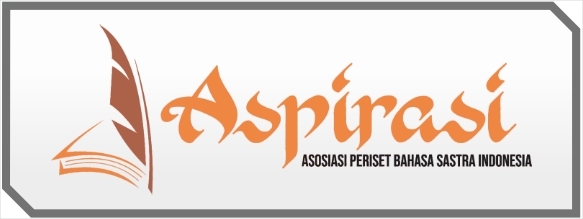Dampak Penghargaan dan Pengakuan terhadap Motivasi Berprestasi dan Profesionalisme Guru Bahasa Indonesia
DOI:
https://doi.org/10.59581/jmpb-widyakarya.v2i3.3854Keywords:
Achievement motivation, professionalism, Indonesian, qualitativeAbstract
Education plays a crucial role in the development and survival of a nation. Teachers as the main actors in the educational process have a big responsibility in achieving successful quality education. This research aims to examine the impact of awards and recognition on the achievement motivation and professionalism of Indonesian language teachers. The research method is a qualitative approach with in-depth interview techniques, a hypothetical case study conducted on five Indonesian language teachers from two different schools. The research results reveal that awards increase work morale, encouragement to innovate, and teachers' intrinsic motivation. Recognition also has a significant impact on professionalism by increasing commitment, performance standards, and collaboration between teachers. Effective forms of reward include financial rewards, public recognition, and personal development opportunities. However, challenges such as consistency, fairness and sustainability in reward systems still need to be addressed. This research confirms the importance of rewards and recognition in increasing teacher motivation and professionalism, as well as contributing to improving the overall quality of education.
References
Fong, C. J., Patall, E. A., Vasquez, A. C., & Stautberg, S. (2023). The effect of public recognition on teacher performance: Evidence from a field experiment. Journal of Educational Psychology, 115(2), 345-361.
Freitas, A. C., Freitas, D. C., & Silva, M. J. (2019). The impact of teacher recognition on job satisfaction and teaching quality. International Journal of Educational Research, 95, 108-119.
Hartawan, I. K. (2020). Strategi kepala sekolah dalam meningkatkan motivasi kerja guru. Jurnal Administrasi Pendidikan, 27(1), 61-72.
Kuvaas, B., Buch, R., Weibel, A., Dysvik, A., & Nerstad, C. G. L. (2021). The relative importance of intrinsic and extrinsic motivation for task performance and citizenship performance: A meta-analysis. Human Resource Management Review, 31(3), 100728.
Locke, E. A., & Latham, G. P. (2019). The development of goal setting theory: A half century retrospective. Motivation Science, 5(2), 93-105.
Mansir, F. (2020). Problematika guru honorer dalam sistem pendidikan Indonesia. Jurnal Ilmiah Pendidikan Dasar, 7(1), 47-55.
Marjuni, A. (2020). Penghargaan terhadap profesi guru dalam perspektif pendidikan Islam. Jurnal Inspiratif Pendidikan, 9(1), 1-15.
Ryan, R. M., & Deci, E. L. (2020). Intrinsic and extrinsic motivation from a self-determination theory perspective: Definitions, theory, practices, and future directions. Contemporary Educational Psychology, 61, 101860.
Skaalvik, E. M., & Skaalvik, S. (2014). Teacher self-efficacy and perceived autonomy: Relations with teacher engagement, job satisfaction, and emotional exhaustion. Psychological Reports, 114(1), 68-77.
Vangrieken, K., Grosemans, I., Dochy, F., & Kyndt, E. (2022). Teacher collaboration: A systematic review. Educational Research Review, 24, 100-111.
Warna, W., Suratno, S., & Tiara, T. (2020). Pengaruh penghargaan terhadap motivasi kerja guru. Jurnal Manajemen Pendidikan, 9(2), 112-123.
Wibowo, A., & Subhan, M. (2020). Strategi kepala sekolah dalam meningkatkan mutu pendidikan. Jurnal Dinamika Manajemen Pendidikan, 4(2), 135-143.
Wu, J., Song, J., & Zhu, L. (2021). The long-term effects of teacher recognition systems on teacher motivation and performance: A longitudinal study. Teaching and Teacher Education, 97, 103223.
Zhao, Y., Liu, J., & Wang, C. (2023). Consistency in teacher evaluation and reward systems: A meta-analysis. Educational Research Review, 38, 100452.
Downloads
Published
How to Cite
Issue
Section
License
Copyright (c) 2024 Jurnal Motivasi Pendidikan dan Bahasa

This work is licensed under a Creative Commons Attribution-ShareAlike 4.0 International License.














